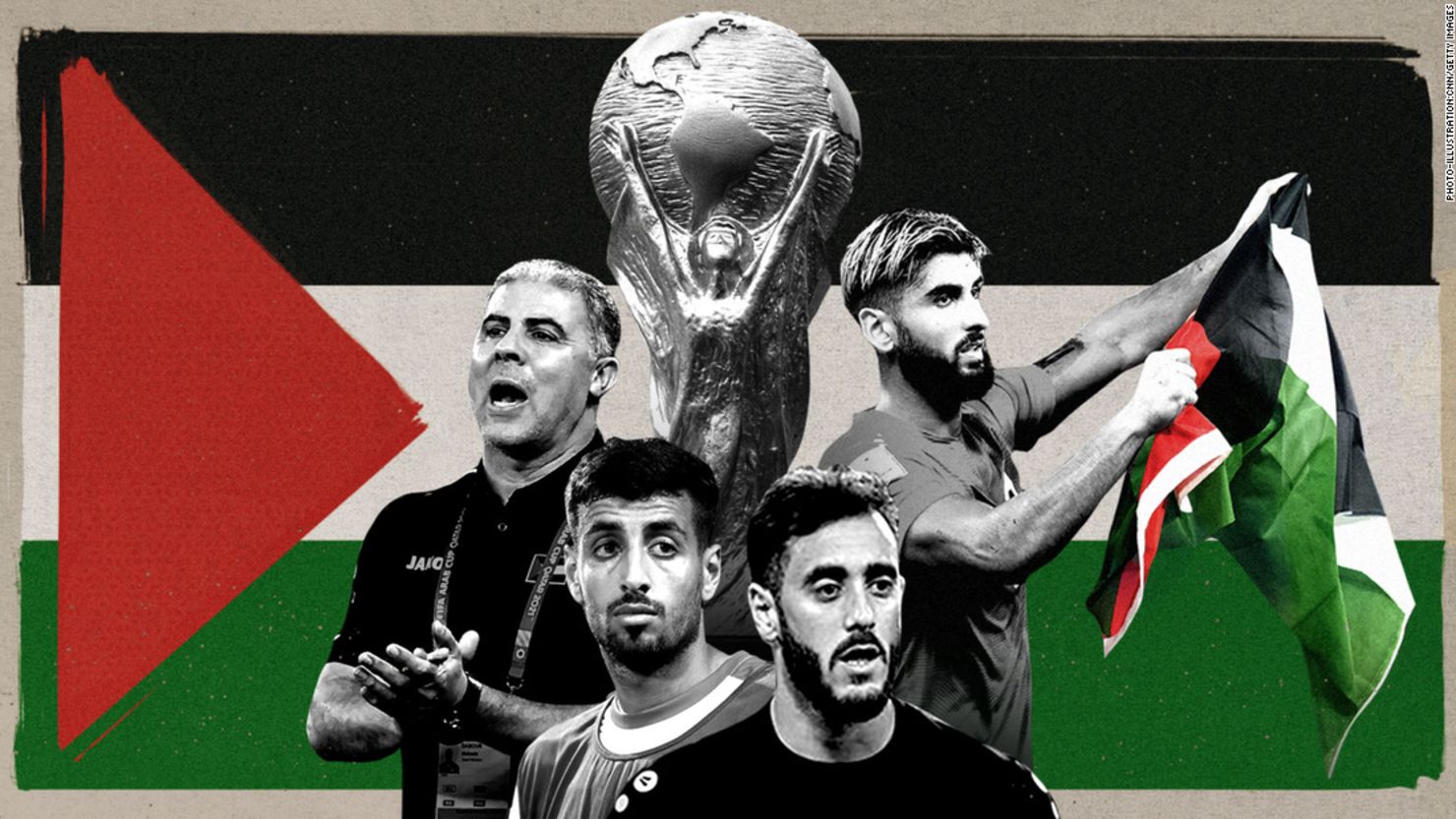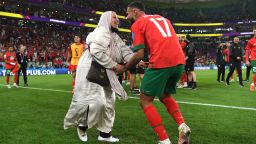The Palestinian team has never taken part in a World Cup tournament, but the territory’s presence was very much in evidence at Qatar 2022.
Fans interrupted press interviews shouting “free Palestine,” while some Moroccan players held up the Palestinian flag after their historic quarterfinal win against Portugal, making the Atlas Lions the first African and Arab team to reach the semifinals.
The Israeli-Palestinian conflict has been a constant source of tension in the Middle East since the State of Israel’s creation in 1948, only made more tense after Israel’s capture of the West Bank, Gaza and East Jerusalem in 1967.
Since the State of Israel’s creation – in what Palestinians call the “Nakba” and Israelis call Independence Day – clashes have been frequent.
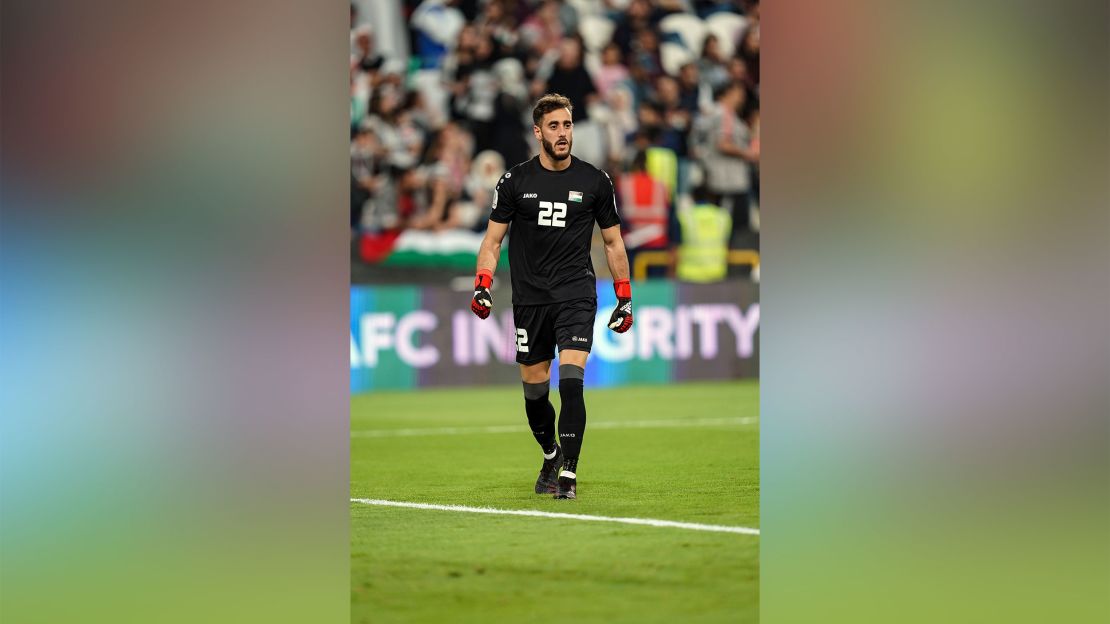
“Nakba” means catastrophe in Arabic, evoking a period which saw approximately 700,000 Palestinians flee or be forced to leave their homes in what became Israel.
“The Israeli occupation doesn’t just affect me, but affects … Palestinian sports in general,” the Palestinian team’s goalkeeper Rami Hamadeh told CNN Sports.
“Whether it’s players being arrested or killed. Regardless of these restrictions, we are able to achieve our goals and perform well, and this shows in our 2023 AFC Asian Cup qualification.”
One such player was the 23-year-old Ahmed Daraghmeh. Palestinian officials said Daraghmeh, a local football player from the city of Tubas near Nablus, was fatally shot by the Israel Defense Forces (IDF) in 2022, according to Reuters. Hamas, the militant group that runs Gaza, later claimed him as a member.
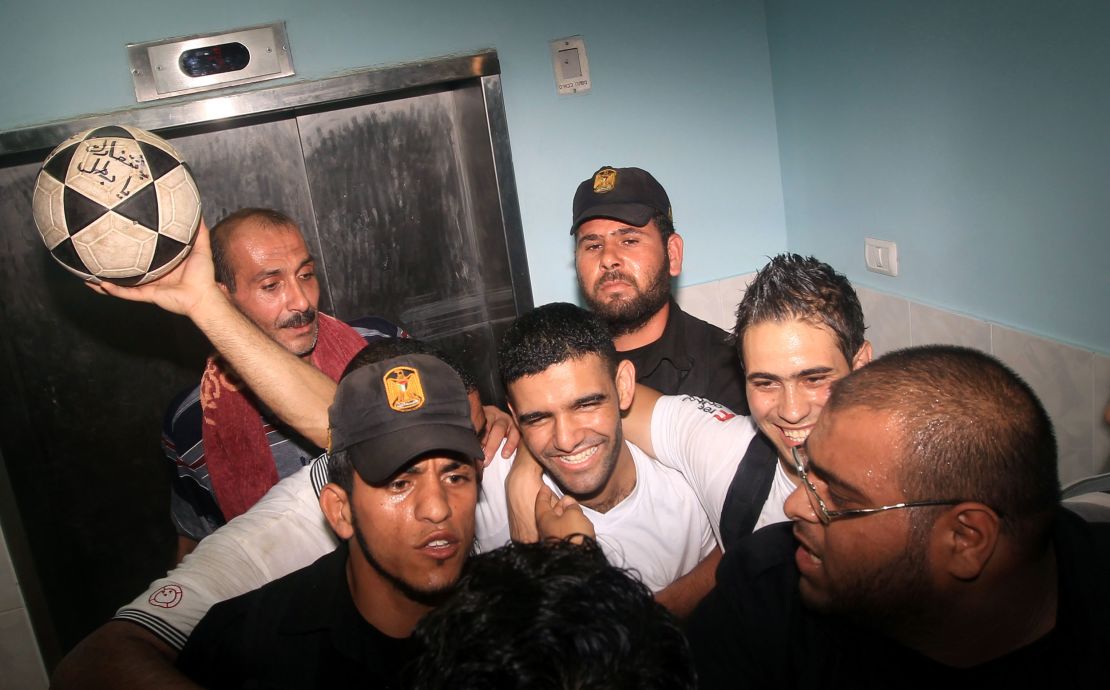
Palestinian athletes have also been arrested in the past. In 2009, Israeli authorities detained footballer Mahmoud Sarsak under Israel’s “illegal combatant” policy, colloquially known as administrative detention.
Under this policy, Israeli authorities can detain Palestinians indefinitely. Sarsak was released in 2012 following a hunger strike.
Israel alleged he was a member of the Islamic Jihad group. Sarsak rebutted those claims and said “I deny all the charges I am accused of. I am a sports person, I am a free footballer, I play for peace and the whole world, and I play for lifting the injustice of the Palestinian people.”
But last year’s AFC Asian Cup qualifiers proved to be a successful performance for the national team.
They beat the Philippines in the final round of the qualification stage with a 4-0 victory, granting them the third win in a row after beating Mongolia and Yemen.
Identification cards
Hamadeh, like 1.9 million other Palestinians living in Israel, holds Israeli citizenship and currently plays for local East Jerusalem team Jabal Al-Mukaber. He previously played for Israeli Premier League club Bnei Sakhnin.
Despite the obstacles Palestinian athletes face, he says they continue to dream big.
“The ambition and the dream is always there for me as a player and the national team. I hope that the national team is able to qualify for the World Cup. It’s the biggest competition that any football player wishes to be part of,” the 28-year-old Hamadeh added.
Palestinian athletes’ movements are determined by what identification card they hold, which is issued by the Israeli military.
Palestinians in the occupied West Bank and the Gaza Strip hold green IDs, while Palestinians in Jerusalem hold blue IDs. Palestinians in the West Bank cannot travel to Gaza or Jerusalem unless they have a special Israeli-issued travel permit.
To play matches in football stadiums Palestinian football players must apply for permits to cross Israeli checkpoints, and permit approvals are unpredictable. In 2019, Israel denied travel permits to some players from a Gazan football team to participate in a tournament against another club in the West Bank.
The president of the Palestinian Football Association (PFA) Jibril Rajoub told AP the denial was “clear evidence that this Israeli occupation is cruel but from our side we keep raising it to FIFA.”
In a survey conducted by London-based firm Henley & Partners, the Palestinian passport was ranked as one of the worst passports to hold in 2023, having visa-free or visa-on-arrival access to just 38 destinations, compared to Japan and the United States who enjoy access to over 100 destinations.
This can make it difficult for players to cross borders for qualifying competitions, leading them to cancel or forfeit.
In 2007, following the first leg of a play-off tie against Singapore, trailing 4-0, the Palestinian national football team failed to appear for the second match of the first round of FIFA 2010 qualifiers, making Singapore the automatic winners. Israel denied the players their travel permits from the Gaza Strip for travel to Singapore.
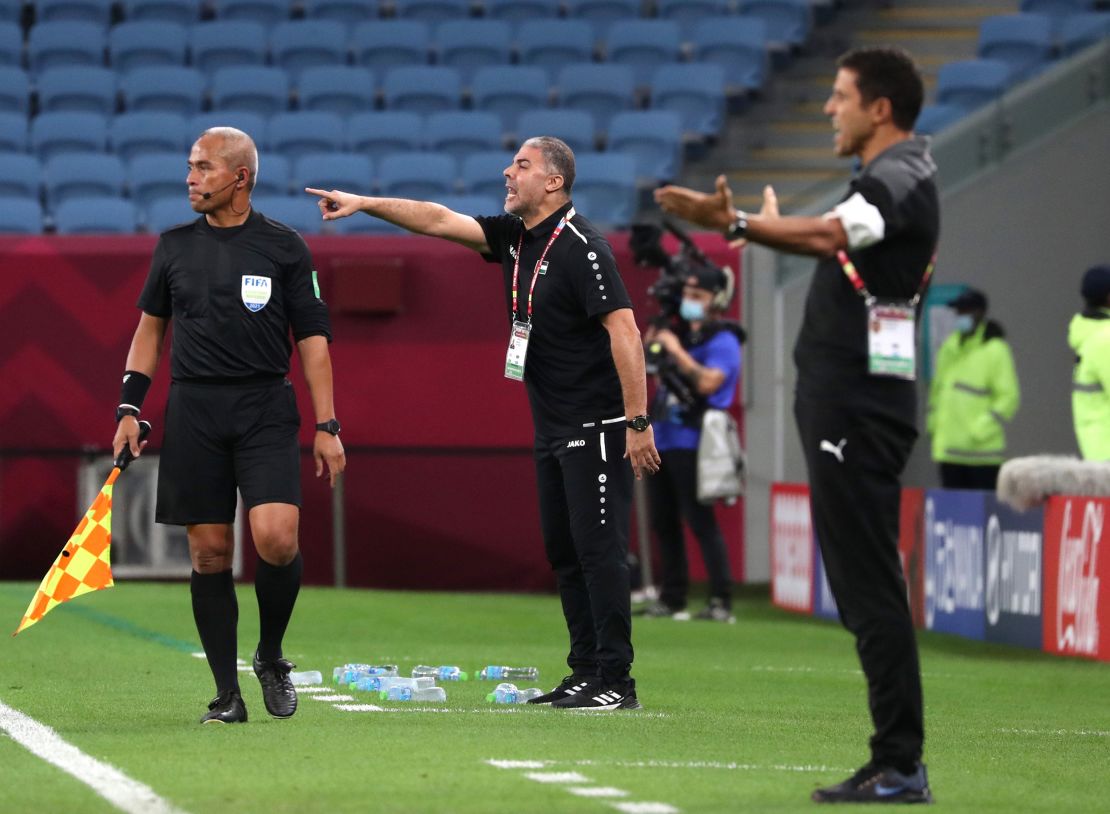
The politics of travel
Nicknamed the “Lions of Canaan” and the “Fedayeen,” the 30-strong Palestinian squad is coached by former Tunisian football player Makram Daboub, who told CNN that the politics of travel can be divisive.
“Our training base is in the West Bank, and I’m able to watch the matches here. But I can’t watch or train the players in Gaza because of movement restrictions. They can’t come to the West Bank either,” said Daboub.
The Gaza Strip is under a land, air, and sea blockade imposed by the Israeli and Egyptian army since 2007. Entry is granted to mostly journalists, diplomats, and aid workers, and tight travel restrictions are imposed on Gazans for travel.
“Freedom of movement in terms of training camps or attending matches is difficult and in our case it takes around a day to be able to move somewhere that should take 20 or 30 minutes,” Daboub said.
In a statement to CNN, a FIFA spokesman said, “Visa restrictions are evaluated on a case-by-case basis by the host country with the respective competition organizer. In the case of the Asian Cup, this is the AFC and FIFA of course for FIFA competitions with the host country or countries.”
Despite travel restrictions, the Palestinian team remains hopeful about their future prospects after qualifying for the 2023 AFC Asian Cup which has been postponed to January 2024.
With players scattered across various parts of the West Bank, Jerusalem, Gaza, Egypt, and Portugal, playing for their respective clubs, the Palestinian national football team has persisted through unique challenges.
Daboub became the team’s official coach in 2021 and believes the Palestinian squad has been steadily improving.
“We have been winning great achievements in the past couple of months. Qualifying for the 2021 FIFA Arab Cup in Qatar and for the Asian Cup. It is an achievement to qualify for the Asian Cup, especially for the third time as the national team,” said Daboub.
In 2022, The Asian Football Confederation (AFC) revealed they are expanding the number of teams for the FIFA World Cup 2026 from 32 to 48. For the first time since 1998, this new format will give Asian teams four additional places to qualify bringing the total to eight.
While FIFA President Gianni Infantino mentioned at a press conference last year that FIFA was reconsidering the 48-team World Cup structure in future discussions, a spokesman for soccer’s world governing body told CNN Sports the structure won’t be changing anytime soon.
This will give the number of Asian teams more spots to qualify and compete in the 2026 FIFA World Cup, and more possibilities for the Palestinian team.
The team will first showcase its talent at the West Asian Football Federation (WAFF) Championship before competing in the 2023 AFC Asian Cup.
Both tournaments will be crucial for Asian teams ahead of the next World Cup qualifier matches.
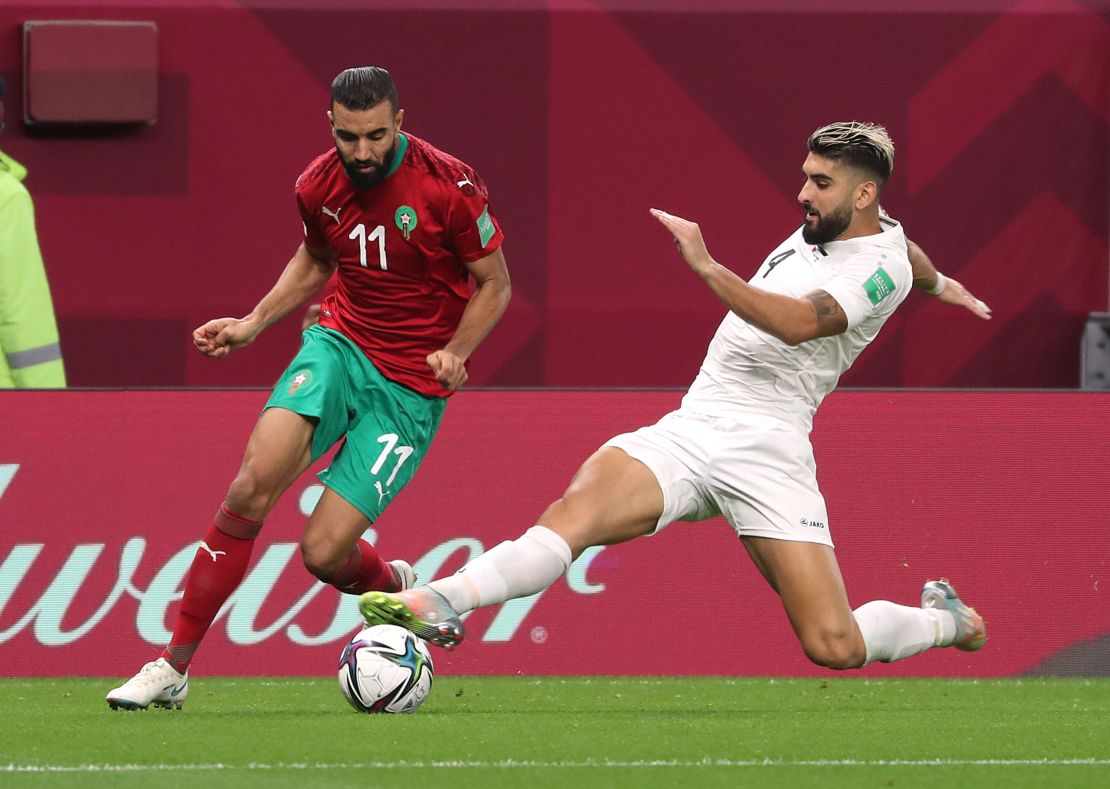
“I believe we can compete in the 2026 FIFA World Cup. At the 2023 Asian Cup qualification games in Mongolia, we won all three matches. During the 2022 FIFA World Cup qualifiers, we beat Uzbekistan 2-0 and played to a draw against Saudi Arabia,” said Yaser Hamed, who plays center back for the national team.
‘Love of football’
Despite not progressing to the 2022 World Cup – the Palestinian team managed to get to the second round of the Asian qualifiers out of a total of three stages – Hamed is positive about 2026.
Hamed was born in Spain to a Palestinian father and a Spanish mother, and references his dad as inspiration for his professional football career.
“When my father moved from Palestine to Spain, he started playing football and he loved it. So maybe the love of football comes from him. Maybe it’s from the Palestinian bloodline,” Hamed added.
Hamed, who scored his second national team goal in a 2022 FIFA World Cup qualification match against Singapore, qualifies to play for Spain’s national football team if he’s called, but plays for the Palestinian national team instead, despite holding Spanish citizenship.
“I thought it was an amazing thing to play for the Palestinian national football team because I’m proud to be Palestinian. I need to use my voice for the Palestinian national team. It’s like I can fight for the country. This is very important for me,” said Hamed.
The road to FIFA 2026 begins this year, with the first stage of the continental qualifiers taking place on November 16, with two more stages continuing all the way through 2024 and 2025.
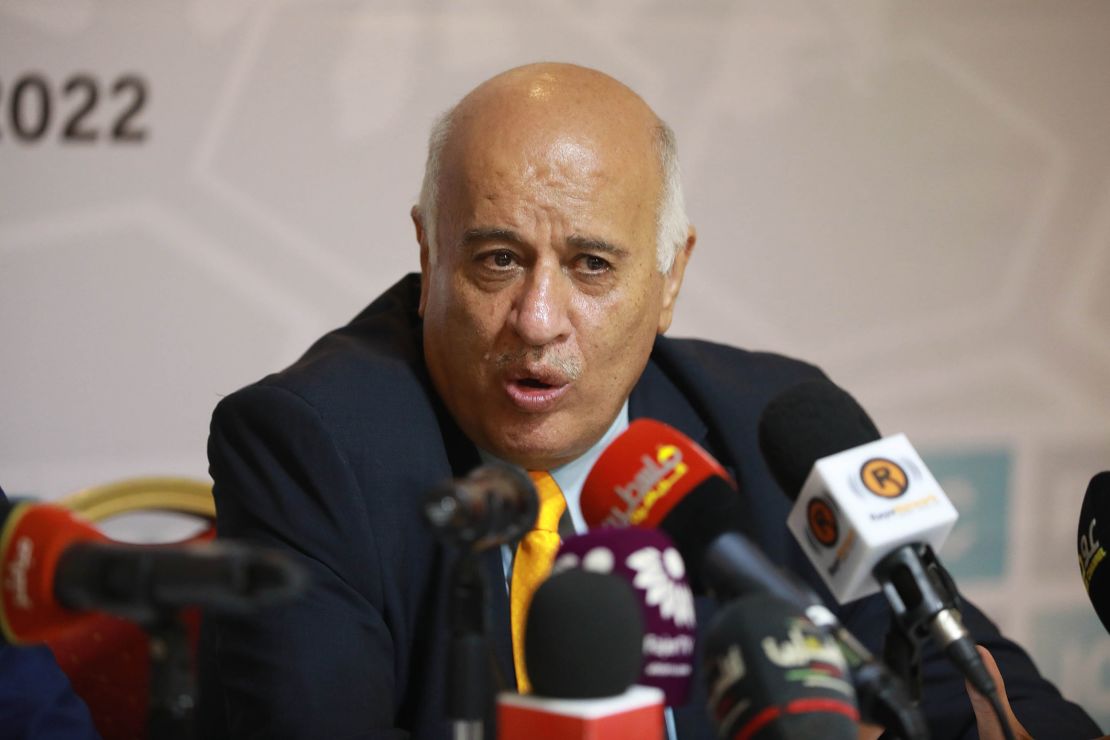
The PFA, led by president Rajoub and General Secretary Firas Abu Hilal, funded the creation of the football squad’s first medical program in 2022 after they qualified for the Asian Cup. That medical program consists of a medical doctor and a nutritionist, who oversee the players’ health and fitness.
Diala Shaheen, who is also the nutritionist for the Palestinian National Olympic Committee, works with the soccer players, monitoring their health and fitness.
“To be an elite athlete requires you to be aware of what you consume and how you prepare, your physical status. I can happily say we are seeing the results with the athletes we are working with and are confirming the changes in their body and their performance in their games,” said Shaheen.
“The nutritional support that’s added on a higher level for our national team is going to make a difference because this is something that was never done before. I believe the importance of such interventions in making a difference on a team level,” Shaheen told CNN Sports, who adds that Oday Dabbagh has been “shining” in the Portuguese league.
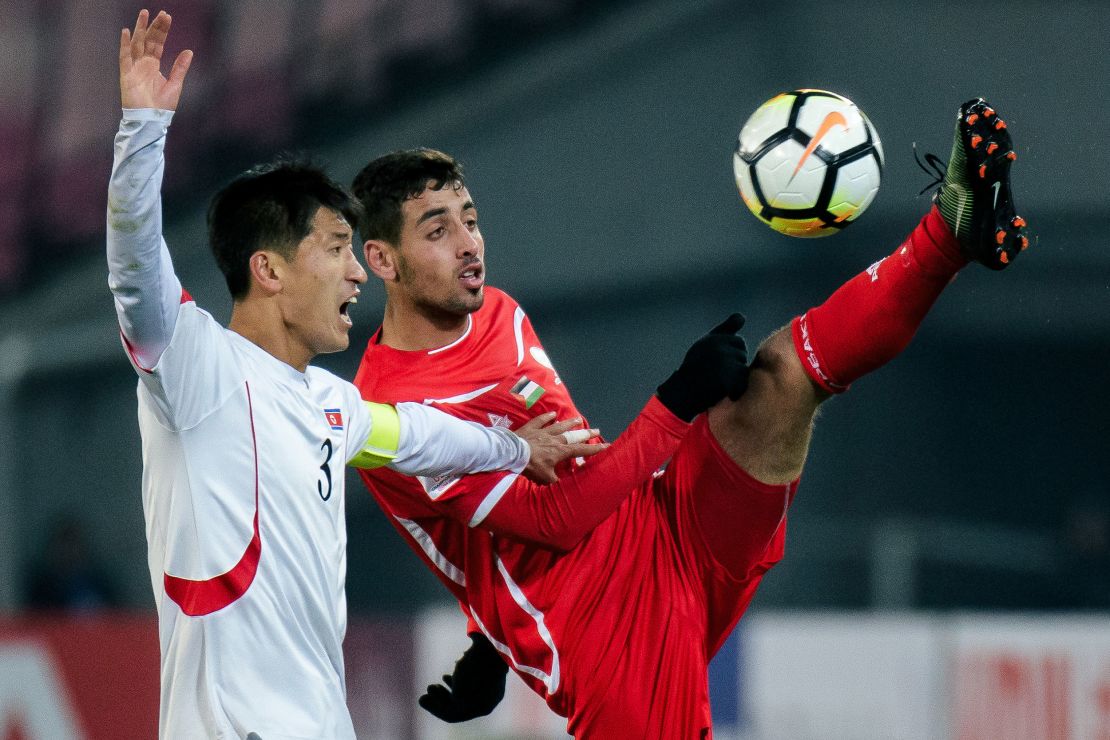
Dabbagh is the first homegrown Palestinian athlete to star in a top European league, according to the PFA – he plays for Portugal’s F.C. Arouca and will be transferring to Belgian league R. Charleroi S.C in June of this year.
Shaheen and the PFA believe this addition will elevate the Palestinian team’s future success at professional tournaments and increase their global stature.
Infrastructure projects
The football team received FIFA membership in 1998 after several attempts. However the relationship between the PFA and FIFA hasn’t always been smooth.
Over the years, the PFA has filed numerous complaints to FIFA and has condemned the world governing body for what it cites as an inability to intervene with Israel’s control over Palestinian sports.
In 2015, the PFA called for the suspension of the Israel Football Association’s (IFA) membership with FIFA.
They accused Israel of restricting movements of Palestinian players in the West Bank and objected to Israeli teams playing in what are labeled by international law as illegal settlements in the West Bank.
FIFA said Israel didn’t violate any rules which led the PFA to withdraw their complaint, allegedly due to pressure by FIFA delegates.
Despite these tensions with the PFA, the world governing body pointed out that through its “FIFA Forward Programme and in addition to operational funding, FIFA has invested nearly $2.1 million into specific football development projects to help the Palestinians.”
Additionally, FIFA’s football infrastructure projects “include the installation of a Futsal Hall as well as renovation and installation of artificial pitch at Faisal Al-Husseini Stadium,” according to FIFA.
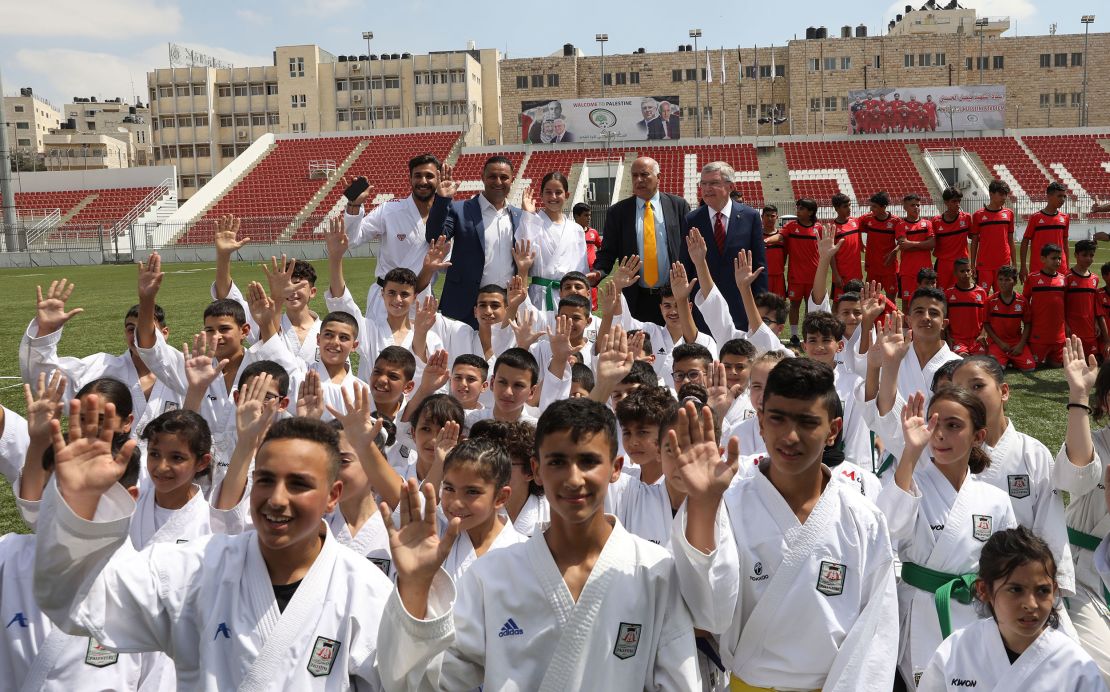
General Secretary of the PFA Hilal told CNN Sports that the challenges the organization faces “won’t stop us from our plans.”
“This is our way as Palestinians to get the Palestinian message and the name of Palestine worldwide through football and through sport,” said Hilal.
“There are always clashes and limitations by the occupation, whether it is clashes happening in matches, or arresting athletes. But it’s known that existence is resistance for Palestinians, even in the world of sports,” Hilal added.
One such interruption during a football match was in 2019 when Israeli forces fired tear gas into a football stadium in Bethlehem, leaving Palestinian footballers to flee the pitch.
On an international level, the football association hasn’t hosted large tournaments because of the lack of infrastructure, according to general secretary Hilal.
Meanwhile in 2013, European soccer governing body UEFA granted Israel hosting rights for the European Under 21-Championships, which was hosted in Tel Aviv and three other cities, despite calls for boycotts from human rights groups.
While the FIFA World Cup 2026 is still three years away, the Palestinian national team is confident the West Asian and Asian Cups may help lead to a FIFA 2026 qualification.
“There’s a full plan to prepare our national team for the upcoming competitions, including the Asia Cup in January 2024 as well as the World Cup qualifications,” said General Secretary Abu Hilal.
“For 2026, we hope as the PFA and with the increase of the members in the World Cup, including the quota for Asia, that we are able to qualify for the World Cup,”
Coach Daboub goes even further.
“We’re going to do what Morocco did in the World Cup,” he said.
